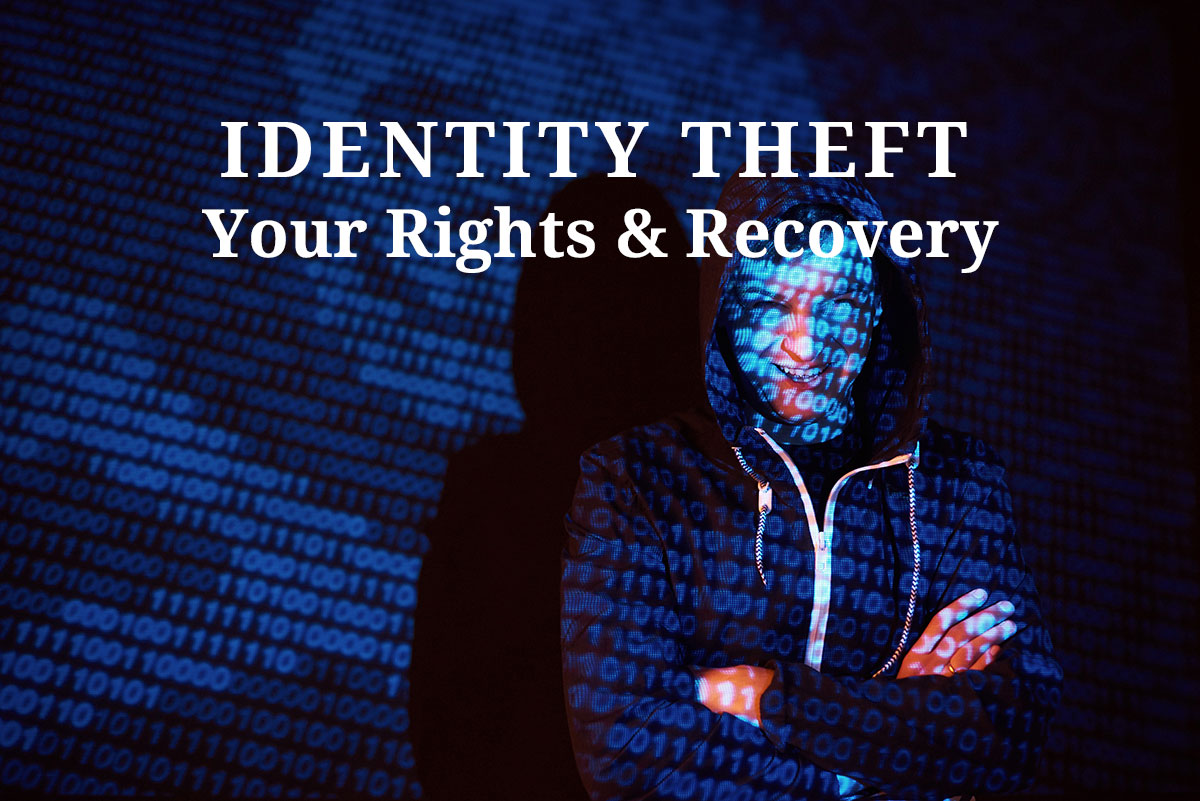Identity Theft: Protect Your Rights and Recover from Financial Damage

Identity theft can have severe consequences, from a damaged credit score to financial loss. Understanding your rights under the Fair Credit Reporting Act (FCRA) and knowing when to take legal action is essential in safeguarding your financial health.
Common Causes of Identity Theft
Identity theft often occurs through various methods that expose individuals to serious financial and personal risks. Common ways identity thieves gain access to sensitive information include:
- Data breaches: Cybercriminals target businesses, financial institutions, and healthcare providers, stealing large amounts of personal data like credit card details or Social Security numbers. This information is then sold without the victim’s knowledge until fraudulent activity appears.
- Phishing scams: Scammers send fake emails or texts pretending to be from legitimate companies, tricking victims into clicking links or sharing sensitive information. Criminals use this data to commit fraud, such as unauthorized purchases or opening new accounts.
- Stolen personal information: Personal data is sometimes physically stolen through wallet theft, stolen mail, or discarded documents. Thieves use this information to access financial accounts, take out loans, or impersonate the victim.
These issues often go unnoticed until you check your credit report.
Consequences of Identity Theft
One of the most harmful effects of identity theft is a substantial decrease in your credit score. This can happen when fraudsters open new accounts and neglect to make payments or when they reach the credit limits on your existing accounts. A lower credit score can affect your ability to get loans, mortgages, or even employment. Additionally, it can result in higher interest rates on credit products, ultimately costing you more in the long term.
Taking Action After Identity Theft
If you suspect that your identity has been stolen, taking immediate action is crucial to minimizing damage. Follow these steps to protect yourself:
- Report the Identity Theft to the FTC – Visit identitytheft.gov to file a report with the Federal Trade Commission (FTC). They will provide you with an identity theft report and recovery plan.
- Place a Fraud Alert or Credit Freeze – Contact one of the three major credit bureaus, Equifax, Experian, or TransUnion, and place a fraud alert or request a credit freeze on your report. This prevents creditors from opening new accounts in your name without verifying your identity.
- Review Your Credit Reports – Get free copies of your credit reports from the major credit bureaus through annualcreditreport.com. Carefully review the reports for any unauthorized accounts or suspicious activity.
- Notify Financial Institutions and Creditors – Contact any financial institution where fraudulent activity occurred, such as your bank or credit card companies. Close or freeze compromised accounts to prevent further damage.
- Dispute Fraudulent Accounts – Write to the credit bureaus to dispute any unauthorized accounts or charges. Include any documents to support your dispute and the FTC identity theft report.
- File a Police Report – In some cases, filing a police report may be necessary, especially if the theft involves physical documents like a stolen wallet or mail. A police report can also support your disputes with creditors and credit reporting agencies.
- Monitor Your Credit Regularly – Even after addressing the initial theft, keep a close eye on your credit report for any signs of recurring fraud. Consider using credit monitoring services to receive alerts on suspicious activity.
Your Rights Under the Fair Credit Reporting Act (FCRA)
As a victim of identity theft, it’s essential to understand your rights under the Fair Credit Reporting Act (FCRA). The FCRA is designed to protect you from inaccurate and unfair reporting. If fraudulent accounts appear on your credit report, you have several important rights:
Access to Your Credit Reports
You are entitled to a free copy of your credit report from each of the three major credit bureaus—Experian, Equifax, and TransUnion—once yearly. Regularly reviewing your credit reports is crucial in detecting and addressing identity theft early. Be sure to take advantage of this right to monitor any suspicious activity.
Dispute Inaccurate Information
If you discover errors or fraudulent accounts, you have the right to dispute these inaccuracies with the credit bureaus. When filing a dispute, include relevant documents, such as your FTC identity theft report, to support your claims.
Credit Bureau Responsibilities
After you submit a dispute, the credit reporting agencies are legally required to investigate your claims. They must verify or remove the information from your report within 30 days. If they fail to do so, you may have grounds for further legal action.
Right to Sue for Damages
Under the FCRA, you can take legal action if a credit bureau does not correct or remove fraudulent information caused by identity theft. This includes seeking compensation for financial losses, emotional distress, and any damage to your financial reputation, such as denied credit or higher interest rates.
Knowing and asserting your rights under the FCRA is a vital step in recovering from identity theft. If you face difficulties with the credit bureaus, consulting with an identity theft attorney can help ensure your rights are upheld and the necessary corrections are made.
Contact an Identity Theft Attorney
If the credit reporting agencies do not properly address your identity theft dispute, it is time to seek legal help. An attorney specializing in consumer law and identity theft issues can guide you through filing a lawsuit under the FCRA. This legal action can compel the credit reporting agencies to correct your credit report. It may also result in monetary compensation for damages suffered due to their failure to comply with the law.
Find yourself facing unresolved identity theft issues, consulting with a consumer attorney at Francis Mailman Soumilas. P.C. can help you navigate your case’s complexities and ensure your rights are protected. We help consumers nationwide take back control and safeguard their financial futures. If you feel a credit reporting agency has violated your rights under the FCRA, contact us now at 1-877-735-8600 or fill out our Free Case Review Form.
